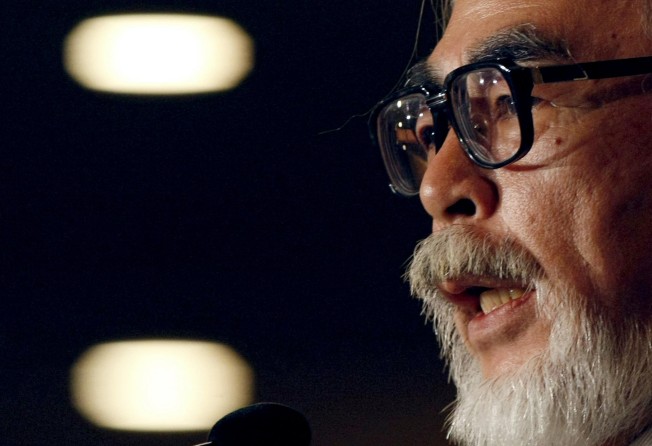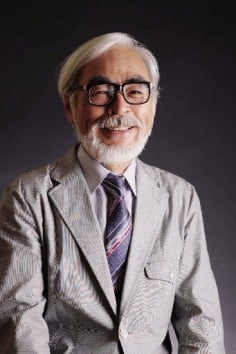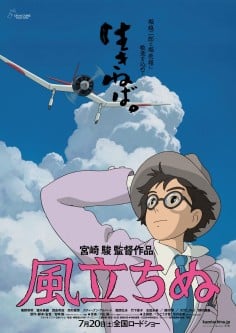Animation legend Hayao Miyazaki under attack in Japan for anti-war film
Japanese director's new film is a box office success but its themes, and his outspokenness, have drawn fierce criticism from nationalists

Japanese animation legend Hayao Miyazaki has always loved planes.
They’re featured prominently in the 72-year-old’s impressive catalogue of animated films, which include classics like My Neighbour Totoro and Spirited Away. Fantasy-themed aircraft were a major element in Miyazaki’s earlier films, including 1984’s Nausicaä of the Valley of the Wind and 1986’s Castle in the Sky. And then there’s 1992’s Porco Rosso, a film about a pig “air pirate,” who flies a plane across the Adriatic Sea.
But Miyazaki’s latest film harnesses the famous director’s adoration of aircraft a little differently. For one, it’s a far cry from his usual fantasy-themed, family-friendly work. And secondly, it’s a film about the man who designed the Mitsubishi A6M Zero, an aircraft widely known for kamikaze missions and the bombing of Pearl Harbour.
Kaze Tachinu, known in English as The Wind Rises, opened on July 20 in Japan. It is the first Miyazaki film based on the life of a historical figure – Horikoshi Jiro, who designed the Zero planes shortly before the onset of World War II. Despite the film’s subject matter, however, Kaze Tachinu carries a quiet anti-war message.
“My wife and staff would ask me, ‘Why make a story about a man who made weapons of war?’” Miyazaki said in a 2011 interview with Japan’s Cut magazine. “And I thought they were right. But one day, I heard that Horikoshi had once murmured, ‘All I wanted to do was to make something beautiful.’ And then I knew I’d found my subject… Horikoshi was the most gifted man of his time in Japan. He wasn’t thinking about weapons… Really all he desired was to make exquisite planes.”

“What Miyazaki offers is a layered look at how Horikoshi’s passion for flight was captured by capital and militarism, and the implications of this for thinking about the history of technology [in Japan],” Penney wrote in a recent article for Asia-Pacific Journal.
But despite the film's intentions, it has still launched in the midst of a Japanese political environment that has taken a hawkish stance on foreign policy. Prime Minister Shinzo Abe’s denial of Japanese war crimes in World War II and his aggressive policies on the disputed Diaoyu islands have sparked criticism in Asia. Miyazaki himself has expressed disapproval.
"One can only be appalled by the lack of historical sense and fixed convictions on the part of top political leaders," Miyazaki wrote in a July editorial put out by his studio’s magazine. "People who have not thought enough should not be messing around with our constitution."
Miyazaki also wrote that a “proper apology” should be given to Korean comfort women who serviced the Japanese army during World War II, and suggested that the Diaoyu islands be “either split in half” or controlled jointly between China and Japan.
Such remarks have generated ire from right-wing Japanese conservatives, many of whom have taken to the internet to express their approval of Prime Minister Abe’s nationalistic policies. On the Yahoo Japan profile for Kaze Tachinu, over 2,000 comments are visible, and many netizens are lashing out at the film’s pacifist message, calling it overly “left-wing”. Others have labelled Miyazaki “anti-Japanese” and a “traitor.”
Despite internet ire, however, Matthew Penney believes that Kaze Tachinu is still on the road to success.
“Internet nationalistic rage [in Japan] is a real phenomenon…but seldom indicative of attitudes in the mainstream,” Penney told the Post in an interview. “[Some parts] of the Japanese internet tend to be extremely anti-Korean and I believe it was Miyazaki’s comment [regarding] comfort women…that got the most negative attention.”
Penney added that internet naysayers “have certainly had no impact on the film’s box office performance, which has been tremendous."

Kaze Tachinu was the biggest opening of the year in Japan, and took in 960 million yen (HK$77 million) in its first two days – particularly from older audiences. International release dates for the film have not yet been announced, but the movie will compete in the summer 2013 Venice Film Festival.
“My sense is that since it is not a children’s film, it will get a relatively limited release in [the West] and be appreciated mostly by fans of anime and Miyazaki’s canon,” Penney said of the movie’s international appeal. “I hope, however, that some mainstream viewers end up approaching it as a meditation on technology, war and industry – themes that are, of course, important for understanding Japan’s descent into war in the 1930s and 1940s.”
Miyazaki – whose very own father helped build airplanes during World War II - would likely agree. Shortly after the release of Kaze Tachinu, he told reporters it was the first of his films to move him to tears.